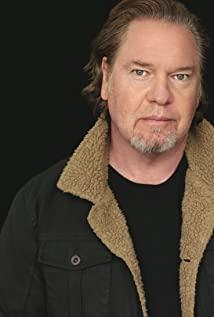Seven Neuropathies: The Meaninglessness
of Violence 1. Violence: Genetic Inheritance In the
long process of human evolution, violence has changed from helping people obtain meat and resisting beast attacks, to helping people compete for production and reproduction resources, satisfying the desire for aggression and aggression, and then again. The so-called "sense of identity", "sense of dignity", "sense of morality" and so on are inserted into strong bundles.
Those tiny things called "genes", the carrier that drives them - human beings, must do everything possible to ensure that genes are inherited. .When
the survival resources are poor and the more ancient, the more efficient the violent competition for resources, because it is the most simple and direct. Those groups or individuals with stronger violent genes are more prone to violent competition for resources, and easier to win Victory, so as to obtain better living conditions and continue to live.
Just imagine, those ancient people with non-violent genes and incomparably gentle, in the long river of evolution, can only obtain increasingly poor and weak production and living resources, Especially the increasingly poor and weak sexual and reproductive resources. Therefore, this line of genes or genetic material is bound to become more and more scarce or even terminated. Only those ethnic groups with violent genes still have the opportunity to continue to
stumble forward. Today, the reason why we can cross the curtain of history, escape the scissors of nature, and see today's sunshine, who can say that it is not the result of our ancient ancestors fighting all the way under the drive of violent genes
? Individuals are more or less equipped with the gene for violence.
Violence is one of the most important inheritances that genes leave to human beings.
Second, revenge: the violence of "justice"
Gandhi said: "If an eye is for an eye, the world will There are only blind people left.”
Neuropathy No. 1 disagreed: “No, there will definitely be a one-eyed man left, because the last blind man cannot blind the eyes of the last one-eyed man, the one-eyed man just needs to run away or hide. It's all right after the bushes." So, the so-called gods and saints are nothing more than that.
David Fincher takes revenge on behalf of God in The Seven Deadly Sins, Quentin Tarantino takes revenge on behalf of himself in The Hateful Eight, and Martin MacDonald's The Seven Madnesses takes revenge on behalf of himself. The way, combining these two kinds of revenge, is really a black humorous picture of absurdity, and it is really Quentin's saying: "No one comes up here Without a dame good reason".
3. Modern Society: The Art of Contract The
Englishman Henry Main's book "Ancient Law" provides us with an extremely important feature of modern society compared with pre-modern society:
"With regard to our time, we can The general proposition that immediately agrees and accepts is the statement that the main difference between our society today and the societies of previous ages is the extent to which the contract occupies a society
. . . . The old law fixed a person's social status irrevocably at birth, modern law allows him to create a social status for himself by means of agreement."
Since the birth of mankind, it has gone through a long period of time. The age of identity society. In such an era, violence is the most important and even the only means for people to change their so-called "destined" social status.
Until about 500 years ago, the great voyage connected the world, and modern science and technology began to take root and sprout in individual laboratories and small folk workshops. For the first time, The Wealth of Nations clearly depicted this The operating principles and rules of a whole new world.
A contract society is beginning to emerge, and ordinary people begin to have new powers. They can participate in this new collaborative system through contracts and create social status for themselves.
The so-called modern society, it is the art of contract, negotiation and negotiation.
4. Contract Society: Violence is meaningless
The violent factor in our genes obviously cannot evolve to drift away in such a short course of modern contract society. They are still lurking in human memory, in our consciousness.
Some of them will be reckless when they get the chance.
However, more of them are quietly transforming into: sweat and hormones in sports arenas, determination and confidence in business battlefields, bravery and persistence in innovative technology, efforts and motivation to challenge the limits of courage... ...
In the age of the contract society, the original significance of violence is quietly evolving into meaninglessness.
View more about Seven Psychopaths reviews











